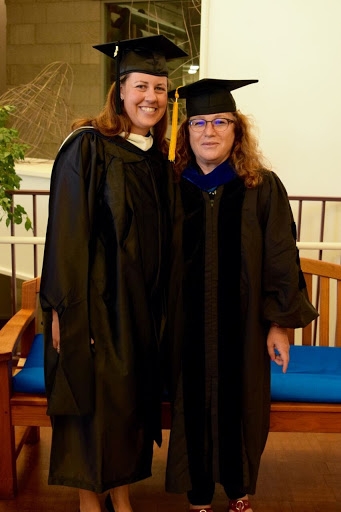Complete Beginner to Master’s in Hebrew
| by Elizabeth Gerner
I couldn’t possibly have known less Modern Hebrew when I first arrived in Vermont in the Summer of 2011.
My sister had studied at Middlebury’s School of French and when I told her I wanted to learn Hebrew, she told me that Middlebury was the place to go. After applying in late spring, I stepped foot on campus having no idea what awaited me.
It started to dawn on me during arrival weekend that I was one of the few “true” beginners in the program that year. Most students who said they were beginners had some sort of previous exposure to Hebrew while I was still working on tackling the Hebrew aleph-beit.
It was also during this weekend that I first experienced the remarkable community of the School of Hebrew. Word got around in the 40-student school that there was a girl who knew literally no Hebrew who was about to sign the pledge with them to only communicate in Hebrew and students started teaching me the basics. They were happy to answer my questions and share what they knew.
After seven weeks full of ups and downs - conversations with patient faculty at meals, hilarious games of language charades, many joyous hours of soccer, days that felt like weeks, some sleepless nights, and a few tears - I returned home as a confident Intermediate Mid-level Hebrew communicator with a stronger sense of self and a host of new friends.
I had conquered the Language Pledge. I could speak in Hebrew with native speakers.
There was a magic about Middlebury that ran deeper than the enchanting green surroundings in the small-town Vermont location. The magic was in the pledge, the pedagogy, and the people.
Why the Middlebury Language Schools is Unique
I had studied Spanish since seventh grade, but the Middlebury method was drastically different than the Spanish classes I had taken.
Instead of being taught in English and spending most class time drilling verb conjugations and vocabulary lists, my Hebrew teachers taught differently.
They built the language for us day by day. They challenged us every day with some new language just a bit outside our comprehension while constantly spiraling back to what we had already learned.
The teachers used pictures, games, videos, and were able to stay in Hebrew the whole time because of their resourcefulness.
They got to know us as people and taught language that was relevant to us as learners. And language learned through meaningful interactions and experiences “sticks” much better than rote memory. The immersion environment enabled me to internalize the language so it became a part of me, instead of just something I knew.
The patience of the faculty is something I won’t soon forget.
There were many times when one person spent a solid five minutes explaining one Hebrew word to me. They navigated from word to word until they landed on one that I already knew, then they used that word to link to other words until it clicked for me. I can still remember exactly where I was and who I was talking to when I learned specific Hebrew words and phrases.
Before and After the School of Hebrew
One month after the program ended, I traveled to Jerusalem to continue my studies.
I was filled with pure language joy when an elderly woman struck up a conversation with me in Hebrew while crossing the street one day.
She asked where I had learned Hebrew and was amazed when I told her that I started studying Hebrew two months ago in the United States.
My Hebrew was mostly limited to my immediate environment but I was able to give a taxi driver directions and order food at the market right away. Also, the fact that my background in Spanish gave me an un-American accent in Hebrew only helped. Native speakers assumed I was a Spanish speaker and answered me in Hebrew instead of switching to English right away.
After my year in Jerusalem, I returned to the School of Hebrew as a level four student, hoping to improve my Hebrew speaking and striving to support beginner students the same way that level four students had helped me the year before.
My Hebrew again improved exponentially and I came back to Middlebury two years later as a member of the first cohort in the School of Hebrew MA program in teaching Hebrew as a second language.
Little did I know that I would move to Vermont with my husband a few years later to work full time for the School of Hebrew. My studies at the Language Schools have opened doors for me that I would have never dreamed of back in 2011.
If I was able to learn Hebrew, starting as a complete beginner, anyone can!
Hard work, self-care, a good sense of humor, and a commitment to the pledge are the recipe for success at the Language Schools.

